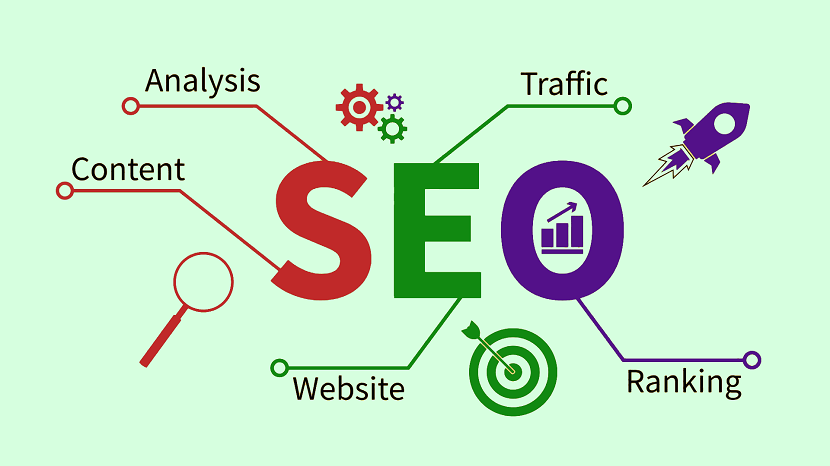- AI search has no longer become a futuristic concept; rather, it has actively changed how people perceive and interact with search engines and how businesses should adapt their online strategies. The shift from traditional keywords, which are based on ranking, to now more intent-driven AI, powered response has changed digital marketing. For businesses, it is significant to understand the transformation and how to use SEO professional services or follow a structured content marketing guide that helps brands to stay competitive.
What is AI search
- AI search is a modern-day technology that mainly uses artificial intelligence techniques such as machine learning and natural language processing, in order to understand a user’s search intent along with the meaning behind their queries instead of simply matching the keywords. AI search allows users to easily enter natural or everyday language questions, or even conversational queries, and then the AI search engines provide relevant, customized, and contextually meaningful results from various sources of data.
- Unlike the traditional keyword research, AI search now handles more complex and difficult queries, typos, synonyms, and incorporates the search history of a user to enhance accuracy, and provide more tailored and intuitive results. AI regularly learns from the search behavior of users to improve its results over the course of time, which makes search faster, user-friendly, and smarter. This further leads to AI providing more personalized recommendations which ultimately improve a user’s experience.
How AI search works
- AI search blends multiple key components and processes to understand and respond to users’ queries with relevant and more accurate information.
- AI search first recognizes a smaller subject of a candidate’s documents or data to generate a broad set of information that is relevant to the query of the user. This helps AI tool to understand the context of a user’s query and what it is asking for.
- After getting the data from a candidate, AI tool actually ranks this data or documents by relevance through the medium of more detailed AI models, which works similar to deep neural networks of humans. These models then understand meaning, contest, and intent behind search query in order to provide more relevant result.
Traditional search vs AI search
- Traditional search and AI search differ majorly in their approach, user experience, and technology. Traditional search mainly ranks pages on the basis of keyword relevance, links, and site authority. Results generated through traditional search are wide and can consist of irrelevant pages, which requires users to sift through links to find their answers. Traditional search handles short, and specific query, but it struggles with complex or even conversational language.
- AI uses machine learning, semantic search, and NLP to understand user intent, and context behind a query. On the basis of that it provides an answer that can synthesize content across various sources supports conversational queries, and regular improves with consistent usage.
Impact of AI search on SEO strategies
- AI search has fundamentally changed SEO strategies by focusing on user intent, high-quality engagement, and user intent over the basic keyword matching that used to happened in the past. Marketers are now responding with better emphasis on content that focuses on semantic context, answers various user queries, and uses machine learning-driven optimization tools. This transformation is marked by multiple impacts, these are:
Content quality and intent optimization
- AI-powered search engines evaluate language nuance, authority, context, and forcing sites to move beyond keyword stuffing toward content that actually addresses the needs of user and search intent. Furthermore, AI-generated summaries and direct answers such as Google’s AI overviews usually increase impressions but they also reduce clicks to individual sites, which makes audience-specific value and conversion optimization more significant.
Regular adaptation and future trends
- AI-powered SEO demands as well as ongoing adaptation to regular change algorithms and user behaviors along with predictive analysis enable marketers to predict upcoming future trends and refocus strategies fastly. Companies also embrace AI-driven SEO tactics like advanced topic modeling, quality-focused content creation, and multimedia optimization such as vice and visual search, which are now selling better rankings, improved conversion rates, and better authority online.
Technical SEO and customization
- Machine learning algorithms enhances by technical SEO by automating the keyword research, link building, competitor evaluation, and content creation which allows brands to create more scalable and targeted SEO campaigns. AI also customizes search results on the basis of user behavior, which allow brands to optimize for nuanced audiences and provide experiences customized to individual experiences.
New metrics and multi-channel focus
- SEO professionals now also track engagement, dwell time, and conversion rates along with rankings and click-throughs, as AI platforms usually redirect more traffic through direct answers as well as rich snippets. The growth of non-Google search channels such as Gemini or ChatGPT increases expansion of SEO strategies to include conversational as well as generative platform, which increases organic reach.
Opportunities and challenges of AI search
Opportunities
- Increased visibility- Platforms such as ChatGPT, Perplexity AI, and Arc Search enables brands to gain visibility within AI-produced direct answers and overviews, which expands reach beyond traditional SERPs.
- Cross-platform discovery- Multiple AI search platforms apart from Google, allow brands to easily position themselves in zero-clicks environments, this diversifies organic traffic sources and improves discoverability.
- Faster, and relevant answers- AI search engines also provide instant, and contextually rick answers that reduce the need to go through web pages, this also frees up time for users and businesses.
Challenges
- Continuous adaptation is needed– The pace of change in AI search as well as optimization platforms requires constant learning and change of strategies, which makes it difficult for smaller businesses to keep up.
- Reduced website traffic- Answers generated by AI has often resulted in decreased click-through rates, as users normally get what they need without even visiting the source website. There are some studies that shows up to 40% reduction in CTR.
- Content attribution- Businesses usually struggle for proper attribution as AI citations, are usually inconsistent, and brand authority is difficult to build outside the direct traffic.
- Privacy and data use– Better personalization of search results heavily depends on collecting user data, this raises complex privacy issues for users and regulatory requirements for search engines.
Conclusion
- AI search is changing how users search for information, and how brands approach the matter of online visibility. From understanding the main intent to focusing on EEAT and structured, the way to move forward is by using smarter but human-focused strategies. While the shift towards AI introduces new challenges such as organic clicks, it also opens up the doors for exciting opportunities for businesses to embrace innovation. For businesses who find it difficult to navigate through this transformation, then expert guidance can create a huge difference. At Pentra SEO services, our team specializes in assisting brands to adapt to changing search landscapes. By combining advanced optimization with creativity and link-building we help brands to thrive in the competitive world.
- Contact us, and our team will get back to you in 24 hours.







